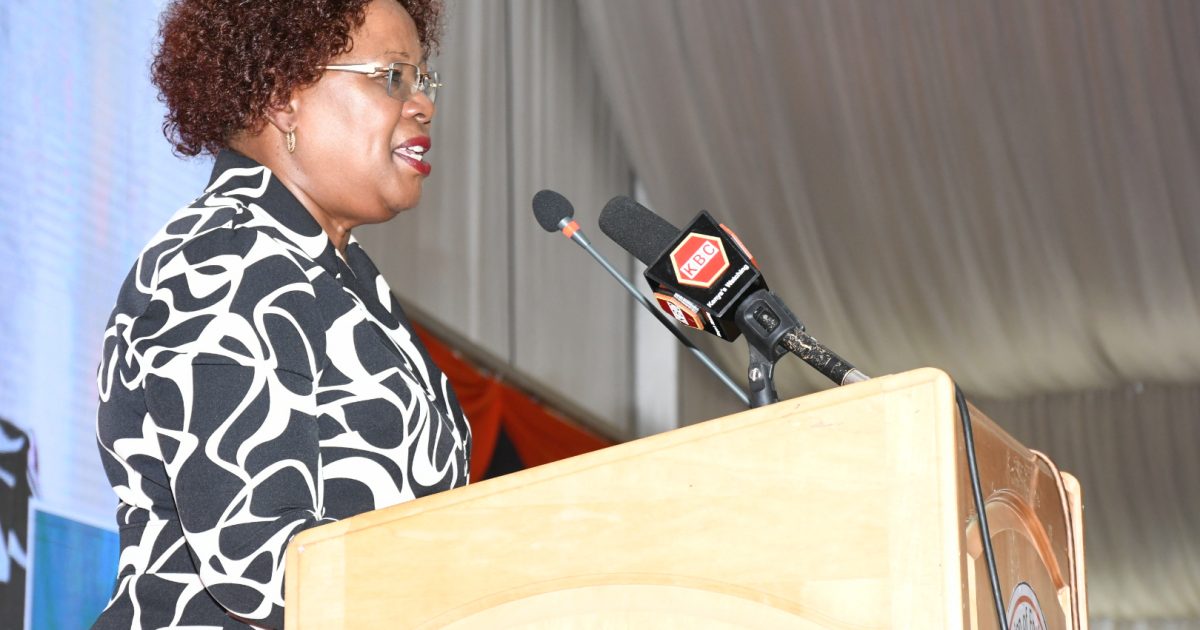The government has made deliberate efforts to minimize the climate change impact as evidenced by Kenya being a signatory to UN 2015 summit that established the 2030 agenda for sustainable 12 development, with 17 Sustainable Development Goals (SDGs).
Cabinet Secretary for Water, Sanitation and Irrigation Alice Wahome said this when she officially opened the 29th IEK Engineering Convention organized by the Institution of Engineers of Kenya in Diani, Kwale County.
The ongoing convention has brought together about 3,000 Engineers both locally and internationally discussing engineering sustainability in the wake of climate change.
She noted that the 13th SDG goal focuses on climate and “as a country, we have several initiatives that are currently underway, including focusing on construction of 100 dams through Public Private Partnership (PPP).”
CS Wahome said earlier this month, the government signed a framework agreement for collaboration on the development of sustainable green industries in Kenya with an investor to produce 30 GW of green hydrogen in Kenya.
She challenged the convention to be resolute and come up with tangible and actionable items which would take the country forward in mitigating this global challenge.
“I want to urge all players in infrastructure development, be they investors, county governments, private sector, contractors, or the general public to engage professionalism at all levels of the value chain,” said the CS.
Wahome directed the regulatory and enforcement bodies such as the Engineers Board of Kenya (EBK), National Construction Authority, Board of Registered Architect and Quantity Surveyors and the Security Teams to partner and collaborate and ensure a multi-agency approach in enforcement of compliance.
She noted that her Ministry would look into the matters raised by the engineering profession like enhancement of technical capacity in public service and county governments to ensure engineering functions are led by Professional engineers.
In his remarks, EBK Chairman Erustus Mwongera urged engineers to embrace an ethical code of conduct and avoid professional negligence at all stages of delivering engineering projects.
Mwongera also appealed to developers to only engage qualified professional engineers and enter into contractual agreements where their roles and responsibilities are clearly spelt out.
In addition, the Chairman noted that the Board is developing sector-specific Graduate Engineers training curricula and commend KeNHA for developing one for highways engineering; Board intends to roll out the curriculum within the next three months.
“I urge all prospective students to ensure they enroll in engineering degree courses that have been recognized by the Board. I also urge our universities to offer engineering degree courses that have been recognized by the Board as this will ensure that graduate engineers are fit for industry and can contribute effectively to the rapid development of our economies,” added Mwongera.
He stated that in a span of seven years from 2015 – 2022, over 105 buildings have collapsed claiming the lives of 142 people and injuring more than 310 others. In addition to the loss of lives and injuries, the collapsing of buildings have had an estimated economic loss of Sh3 billion.
The 5 days conference ending on Friday aims at coming up with resolutions that could be implemented in the context of engineering practice, policy, education or research to mitigate the negative impact of climate change locally and globally.
By Catherine Muindi





